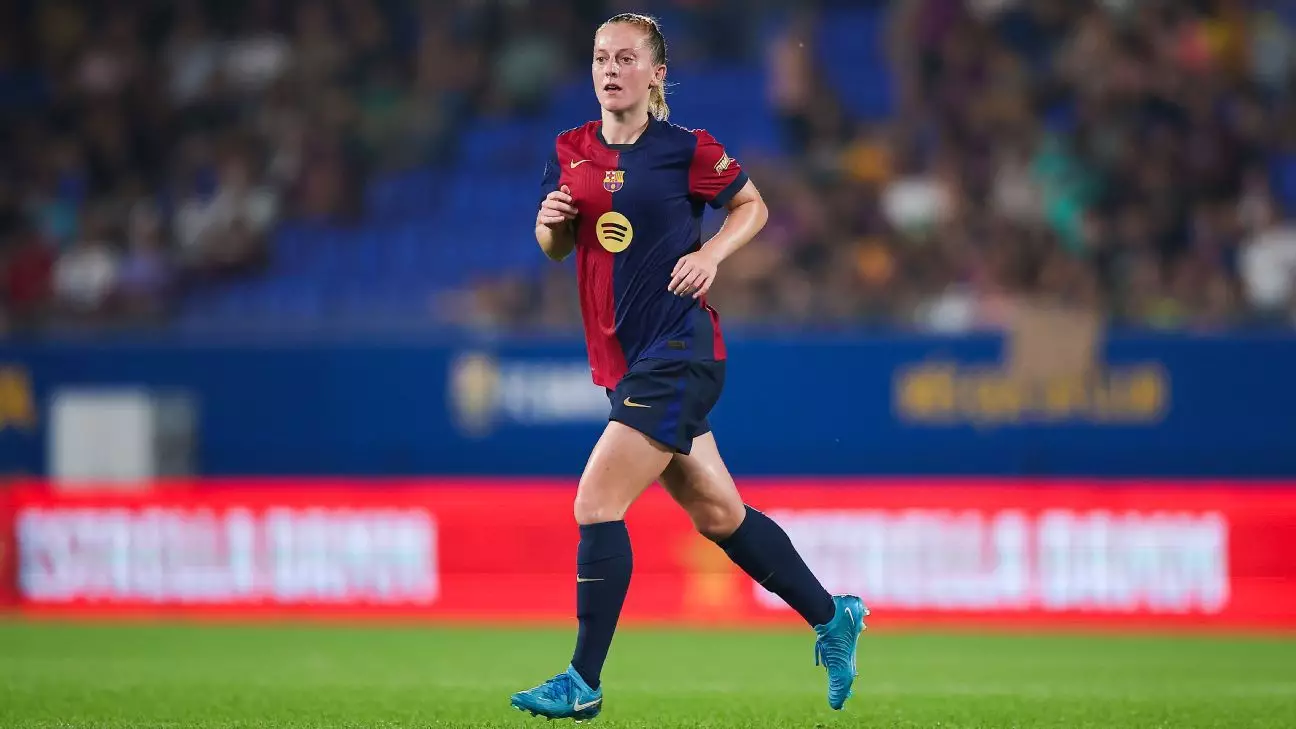In the fast-evolving landscape of women’s football, high-profile transfers often become the spotlight of media attention. The recent situation involving England international Keira Walsh and FC Barcelona provides a compelling case study. Barcelona, renowned for its commitment to building a powerhouse in women’s football, has made headlines by rejecting a substantial bid for Walsh, a player they see as pivotal to their ambitions. This article delves into the implications of this decision, the players involved, and the significance of such investments in the women’s game.
The proposed transfer was not just any ordinary bid; it represented a potential shift in the dynamics of women’s football market values. Reports indicate that Arsenal put forth an offer estimated at around €1.1 million ($1.2 million), which would have shattered the previous women’s transfer record of €800,000 set earlier this year with Racheal Kundananji’s move to Bay FC. This staggering figure highlights a growing trend where clubs are keen to invest heavily in talent, reflecting the increasing competition and commercialization of women’s football.
Barcelona’s decision to decline this lucrative offer underscores the high stakes involved. It illustrates that while financial incentives can attract players, they may not always drive the decisions of clubs that aim to cultivate stability and excellence within their squads. The refusal to entertain the deal suggests Barcelona values Walsh not just for her ability on the pitch but as an integral part of their strategy moving forward.
A critical element of the transfer saga is Walsh’s €3 million release clause. This established barometer not only communicates her worth but also gives clubs a clear benchmark for negotiations. Barcelona’s firm stance on adhering to the release clause underscores their determination to build a competitive team capable of maintaining dominance in domestic and European competitions.
The fact that Walsh is out of contract at the end of the season adds an intriguing dimension to the situation. While Barcelona may wish to retain her services, they must confront the reality that failing to secure her for the long term could lead to losing her without any financial compensation. This precarious balance between holding onto prized assets and the risk of them leaving for free is a challenge that many clubs, including Barcelona, must navigate carefully.
From Walsh’s viewpoint, the situation is equally nuanced. Sources suggest that she was open to a return to the Women’s Super League, where she established her reputation prior to her move to Barcelona. Yet, she remains a key player within a team that made history by winning everything they aimed for last season. Barcelona’s intention to convince her to extend her contract illustrates a broader trend within women’s football: the desire to nurture players and foster loyalty, rather than simply treating them as commodities.
Moreover, Barcelona’s recent performance, including a convincing 3-1 victory over Real Sociedad, reiterates the value of retaining such a talented midfielder. Coach Pere Romeu’s public backing of Walsh as an “essential player” not only serves to reassure fans and stakeholders but also solidifies the club’s intention of maintaining a cohesive and committed squad.
This situation extends beyond individual clubs and players, reflecting the broader evolution of women’s football. The burgeoning interest and investment in the women’s game are evident with ambitious moves by clubs such as London City Lionesses, which recently signed María Pérez, enhancing its roster to challenge for promotion to the Women’s Super League.
As clubs invest in women’s football, the narrative continues to tilt towards more professionalism, competitiveness, and visibility. The courage of teams to turn down large offers for key players signifies a growing maturity in the league and a recognition of the potential for sustainable growth within women’s football.
The recent developments surrounding Keira Walsh and Barcelona encapsulate the complexities of modern football transfers, especially in women’s football. They represent a confluence of ambition, financial viability, and the core ethos of building lasting teams. As contexts shift and evolve, what remains clear is the promise of transformational growth for the women’s game as clubs and players navigate this exciting journey together.

